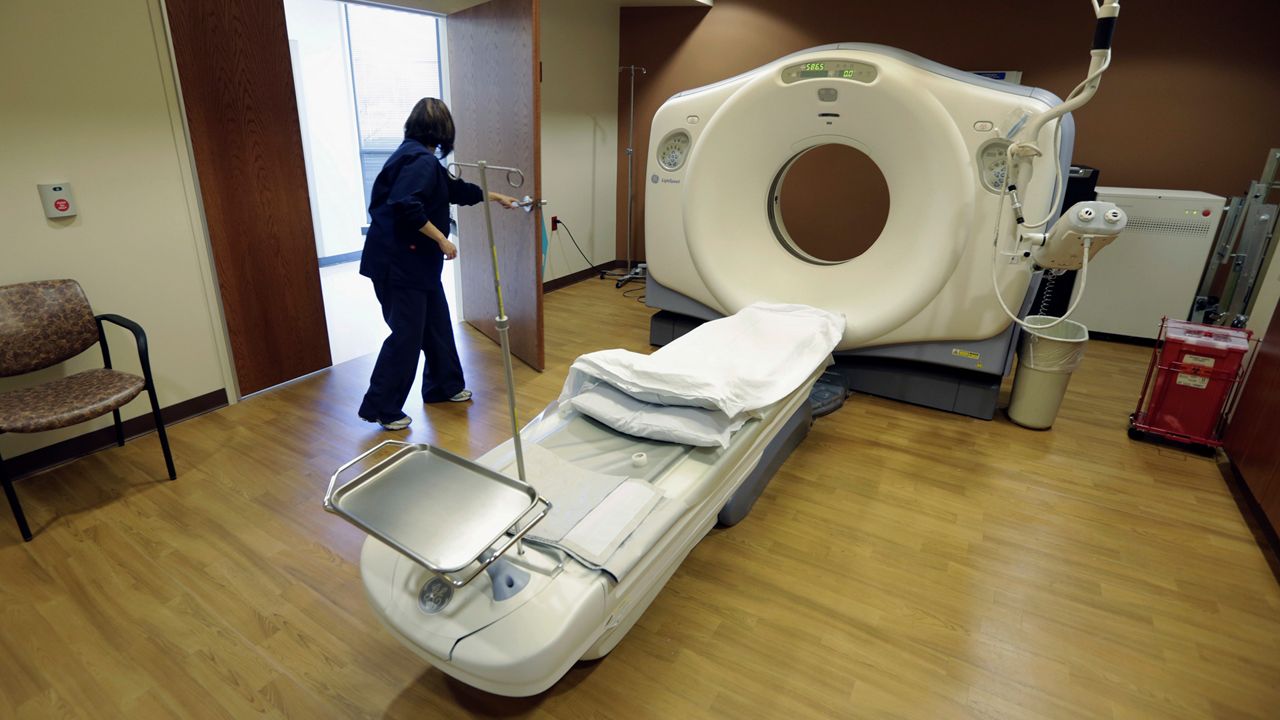COLUMBUS, Ohio — Hospitals are conserving a fluid used for CT scans due to a supply shortage that results from lockdowns in Shanghai, officials said.
What You Need To Know
- GE Healthcare said it's working to restore CT contrast production levels in Shanghai
- The shortage of Iohexol could last until late June, according to the AHA
- The Cleveland Clinic said it is using conservation strategies due to the shortage
The Cleveland Clinic is closely monitoring the industry-wide shortage of CT contrast, and officials are in communication with the manufacturer daily, the medical center said in a statement to Spectrum News.
“We are monitoring our existing inventory levels across all of our locations and working on conservation strategies to ensure we have what we need to care for our patients,” the statement said.
GE Healthcare, the company that produces Iohexol, said it is “working around the clock” to address the shortage, while working directly with affected customers to keep them up to date on the situation.
Iohexol is a “contrast media,” which can be given as an injection for procedures, including CT scans and X-rays. The fluid helps clinicians get a clear view of what’s going on in veins and arteries.
The company said the situation is improving, and reported its Shanghai facility is back up to 50% output.
A spokesperson said they have expanded capacity at a facility in Cork, Ireland. With both facilities, they have switched from sea transport to air transport to speed up deliveries.
The company expects more operators to resume working at the site contingent upon local COVID-19 protocols.
OhioHealth, a Columbus-based health system with a dozen hospitals, said it has a supply of contrast media, and it is working collaboratively with other regional hospitals to share its supply.
“At OhioHealth, we are fortunate to have diversified our IV contrast suppliers and, as a result, are experiencing minimal impact due to the GE contrast shortage. We are equally fortunate to have engaged physician partners who are nimble and work with us to mitigate the impact that these and other shortages have on our ability to deliver safe, high quality, and uninterrupted patient care,” spokesperson Colin Yoder said.
According to the American Hospital Association, normal production levels at the Shanghai facility are not expected to be met until late June. Since April 19, the company has been rationing orders for Iohexol, the AHA said in its statement last week.
“This shortage once again points to the need to improve the resilience of the supply chain so that urgently needed care for patients is not interrupted. These efforts must include taking steps to encourage and strengthen domestic manufacturing and production in nearby countries, and to deepen the supply chain to enable continued availability of critical supplies and medications,” the association said.
Some U.S. hospitals have already been forced to postpone certain elective surgeries due to the shortages, according to media reports.
The American Society of Health-System Pharmacists issued recommendations for impacted health systems that may need to conserve their supplies.
Options include relying on alternative imaging techniques like ultrasounds or MRIs, performing scans without the contrast fluid and delaying non-urgent imaging, the organization said.



